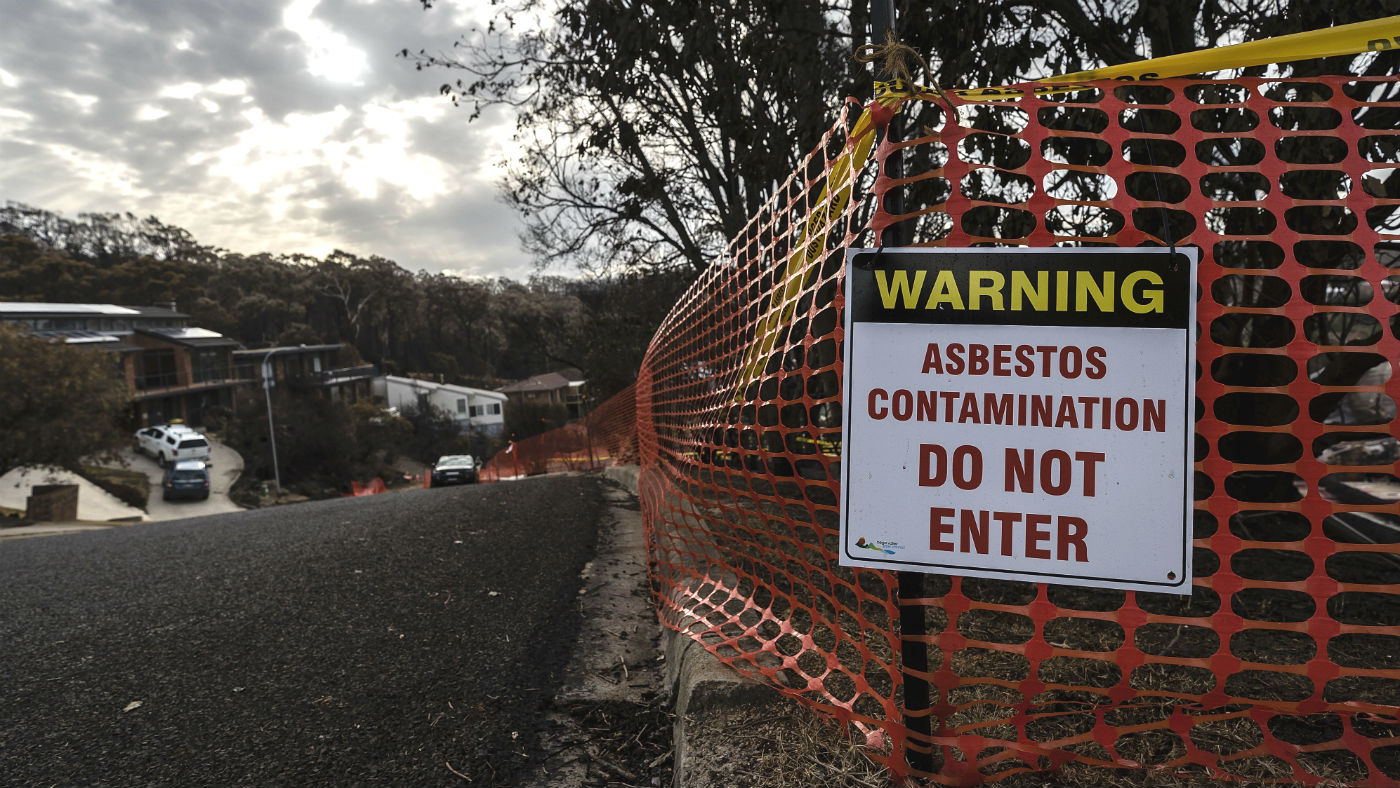Asbestos in schools: thousands at risk
Deadly mineral continues to take its toll decades after ban

A free daily email with the biggest news stories of the day – and the best features from TheWeek.com
You are now subscribed
Your newsletter sign-up was successful
Nearly 700 state schools have been referred to the HSE by the Department for Education for potentially failing to safely manage asbestos in their buildings, putting thousands of pupils and staff at risk.
According to the National Union of Teachers, 319 teachers have died from mesothelioma since 1980. The Daily Telegraph says “it is estimated that for every teacher’s death, nine children will die, meaning over 100 people will die every year in the UK as a result of exposure when they were at school”.
What is asbestos?
The Week
Escape your echo chamber. Get the facts behind the news, plus analysis from multiple perspectives.

Sign up for The Week's Free Newsletters
From our morning news briefing to a weekly Good News Newsletter, get the best of The Week delivered directly to your inbox.
From our morning news briefing to a weekly Good News Newsletter, get the best of The Week delivered directly to your inbox.
Asbestos, a naturally occurring fibrous mineral, was widely used in the UK as insulation and a fire retardant up until the 1970s. Questions had been raised over its health impact since the early 20th century, but the import and use of blue and brown asbestos was not banned until 1985, while white asbestos, thought to be less dangerous, was banned in 1999.
Asbestos-containing materials are harmless if properly managed, as the deadly fibres are only released if the material is disturbed.
According to newly released figures from the Health and Safety Executive (HSE), deaths from mesothelioma, a cancer of the lining of the organs caused almost exclusively by the inhalation of asbestos fibres, have soared from just a few hundred in the 1970s to 2,523 in 2017. The UK, along with Australia, now has the highest mesothelioma rates in the world.
Trade union bosses branded the numbers “shocking” and warned that cash-strapped investigators might not be able to fully probe all the reported cases, reports The Sun.
A free daily email with the biggest news stories of the day – and the best features from TheWeek.com
Why are so many people dying now?
“Asbestos-related cancers can occur as many as 50 years after exposure and deaths are now thought to be reaching their peak,” The Guardian reports.
Roger Maddocks of Irwin Mitchell LLP, a law firms that specialises in workplace injuries and illness, claims that “in many cases, people are now paying the price for criminal failings by industry and the government” across decades.
-
 Why is the Trump administration talking about ‘Western civilization’?
Why is the Trump administration talking about ‘Western civilization’?Talking Points Rubio says Europe, US bonded by religion and ancestry
-
 Quentin Deranque: a student’s death energizes the French far right
Quentin Deranque: a student’s death energizes the French far rightIN THE SPOTLIGHT Reactions to the violent killing of an ultraconservative activist offer a glimpse at the culture wars roiling France ahead of next year’s elections
-
 Secured vs. unsecured loans: how do they differ and which is better?
Secured vs. unsecured loans: how do they differ and which is better?the explainer They are distinguished by the level of risk and the inclusion of collateral
-
 The truth about vitamin supplements
The truth about vitamin supplementsThe Explainer UK industry worth £559 million but scientific evidence of health benefits is ‘complicated’
-
 Covid-19 mRNA vaccines could help fight cancer
Covid-19 mRNA vaccines could help fight cancerUnder the radar They boost the immune system
-
 Deadly fungus tied to a pharaoh's tomb may help fight cancer
Deadly fungus tied to a pharaoh's tomb may help fight cancerUnder the radar A once fearsome curse could be a blessing
-
 'Poo pills' and the war on superbugs
'Poo pills' and the war on superbugsThe Explainer Antimicrobial resistance is causing millions of deaths. Could a faeces-filled pill change all that?
-
 The Y chromosome degrades over time. And men's health is paying for it
The Y chromosome degrades over time. And men's health is paying for itUnder the radar The chromosome loss is linked to cancer and Alzheimer's
-
 A bacterial toxin could be contributing to the colorectal cancer rise in young people
A bacterial toxin could be contributing to the colorectal cancer rise in young peopleUnder the radar Most exposure occurs in childhood
-
 Why are more young people getting bowel cancer?
Why are more young people getting bowel cancer?The Explainer Alarming rise in bowel-cancer diagnoses in under-50s is puzzling scientists
-
 Five medical breakthroughs of 2024
Five medical breakthroughs of 2024The Explainer The year's new discoveries for health conditions that affect millions